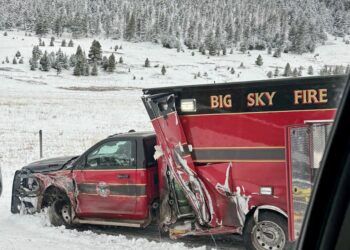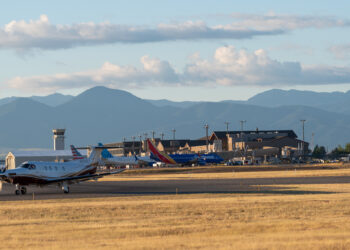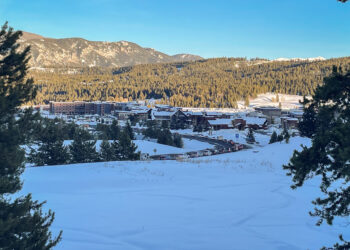By Jason Bacaj MANAGING EDITOR
BIG SKY – The Gallatin Canyon Water and Sewer District secured a funding increase and an effort to close a resort tax business registration loophole passed first reading Wednesday in two votes by the Big Sky Resort Area District board.
The GCWSD had an initial operating budget of $74,000, according to a letter sent to BSRAD from Scott Altman, president of the new water and sewer district. But after securing almost $3 million in grant money, Altman wrote that the initial budget “risks losing secured funds and delaying critical community infrastructure.” Of the grant money, $2 million comes from an American Rescue Plan Act grant that must be used by 2025.
“Long story short: Great first year, busy second year,” Mace Mangold said in a presentation to BSRAD board members. “It’s only going to get busier.”
Mangold is a senior project manager with the Montana-based engineering firm WGM Group that’s working with GCWSD. He walked board members through the requested budget increase from $74,000 to $200,000.
Members of BSRAD expressed concern that the canyon district will come to rely on resort tax money, citing certain phrasing in Altman’s letter that the district aims to be “substantially self-sufficient.”
But Mangold emphasized that the district’s goal is to piece together money through a combination of private funding and ARPA money that will allow it to become a “self-sufficient entity just like Big Sky Water and Sewer District” operating from money collected from monthly user rates and connection fees.
“I like where this is heading,” said Sarah Blechta, chair of the BSRAD Board of Directors. “Us helping to get it standing up is critical for this community, I think.”
The board voted unanimously to increase the GCWSD’s operating budget to $200,000.
The business registration loophole the board moved to close on Wednesday involved adding an additional phrase that prevented businesses that provide services necessary for life—such as electricity provided by NorthWestern Energy, said Daniel Bierschwale, BSRAD executive director—from registering with tax the district.
“We were getting some push back from a very small segment of businesses,” Bierschwale said. “Because of how we phrased the original ordinance reading, they had an out.”













